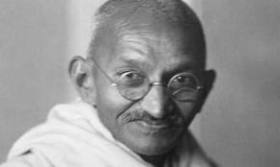David Finney 41589599
The descriptor ‘The Empire on which the sun shall never set’ was given some credence by the Reverend W.B. Brown of New Jersey in 1865 when he suggested that it was true ‘because God did not trust the British in the dark’. It is claimed that he was quoting Abraham Lincoln but Lincoln died in 1786 when the sun was still ascending and the temporality of colonisation was never being contemplated. A consideration here of two significant events in the nineteenth century will show Britain’s failure to understand the ineluctable evolution of the civilised world into independent nation states. Maybe it was domination of imperialist expansion at that time which dazzled British politicians and their Colonial Office into thinking that the loss of the North American colonies had been an aberration.
The acquisition of a widespread and compliant empire was a brilliant sleight- of -hand and it coincided with Britain’s financial and military strength arising out of its lead in the industrial revolution. The greatest mistake was a reluctance to recognise that all successful colonisation is intrinsically self-destructive. The causes of two events in India and Jamaica, which the British either failed or refused to understand, are now clear. All imperialists of the time believed that colonisation was the natural and permanent product of racial superiority.
India.
The common cause of the rebellions by native soldiers and civilians in the two colonies was the vicissitudes and cruelty of colonial rule. The Indian Mutiny, which occurred in 1857 was the outcome of one hundred and fifty years of expanding rule by the British. This rule had grown out of an initial series of coastal commercial enterprises by The East India Company and its extension into administration over the loose association of Indian provinces. This domination was all achieved by a total force of thirty-five thousand troops in a civilian population of one hundred and eighty million. The administration depended on outright shows of strength or threats and no attempts were made meantime to promote Indians to officer rank: whilst Indian sepoys were loyal to their more enlightened British officers, these were few. Most officers were young, often second sons, and apart from their patronising attitudes they made no efforts to understand Indian caste differences and religious practice.
There had been whispers of disquiet, and isolated rioting occurred in Punjab military camps. This lacked effective natural leadership but spread nonetheless through central and North India. Passions were inflamed by reports that greased cartridges which were offensive to Hindu and Mohammedan sepoys would be introduced. The reports were officially denied but the damage was done. The fighting soon became vicious and the reprisals were brutal; it remained stalemate until the arrival of additional British troops and improved armaments. The press accounts of heavy casualties on both sides created revulsion and outcry back home.
Jamaica.
The Morant Bay Rebellion in Jamaica in 1865 arose out of civilian native discontent and was limited to a small part of the island. The same harsh military discipline obtained here and the revolt against the small British garrison followed poor harvests and widespread unemployment: the initial protests by farmers were checked by police but, when they attempted to arrest the ring leader Paul Bogle, they were resisted by three hundred of Bogle’s fellow churchmen. In the process several natives and twenty one English and their supporters were killed. Wide local participation emerged and it required a detachment from Kingston under the direction of Governor Edward Eyre to quell the riot. Eyre held trial under British Martial Law and more than 400 natives were executed, either in the rounding up process or after court conviction.
Britain.
As in India the reactions of the government and the public in Britain were at first sympathetic to British casualties but, when the full reports revealed the excessive slaughter of native Jamaicans, the mood changed. Eyre was called to London and a group of prominent activists formed The Jamaica Committee; they made unsuccessful attempts to pursue action against Eyre in a Somerset court which was stacked with his cronies. Separate attempts were made to prosecute him in London courts but failed on what is now considered to be dubious interpretation. The two young British officers who had so harshly applied Martial Law in Jamaica were tried in London but were summarily acquitted. The whole matter received wide British press coverage and noisy partisan support. The British government remained silent and afterwards retired Eyre on full pension. The process was a sham.
Peace was achieved in both colonies in the short term by strengthening army numbers: de-colonisation occurred soon in Jamaica, as its value to Britain expired, but India remained a colony until 1947. The introduction of education and civil service administration had already made the countries ready for self government but political conservatism persisted in England. Fortunately both de-colonisations avoided bloodshed but the respect for British institutions was permanently compromised.
References.
India.
The Indian Mutiny and the British Imagination, Gautan Gavrovarty, Cambridge University Press, 2005
Jamaica.
The Governor Eyre Controversy, Bernard Semmel, McGibbon and Kee, London,1982.
Britain.
A Jurisprudence of Power, R. Kostal, Oxford University Press, 2005.
Words 828.



A very interesting post. I really like how you have categorised the discussion into India, Jamaica and the home front. A criticism I would have however is I am unsure of the argument you are making with this post. It is a concise and interesting summation of the breakdown of colonisation and the events which led up to it, yet I feel there is no real direct line of thought. Indeed, were it to be to display Britain’s failure to understand the ‘ineluctable’ transition of colonies to nation states, perhaps this could have been stated in a more succinct way in line with the aim of this task. Regardless of this, its a very interesting post; and collates some of the most important strikes against British colonial rule in an exciting way.